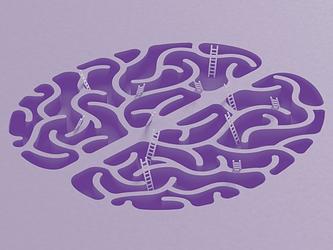Nudging in the right direction: Insight from the Behavioural Science Summit

Digital frictions
Consumers’ experiences of companies’ digital services can have a massive bearing on their overall opinion of a company. Emily Allen, marketing research and insights manager at Google, discussed a study on how behavioural science could play a role in making digital experiences better for consumers, in particular, navigating issues with using online services, such as making a complaint.
“Looks at how much this impacts your satisfaction scores,” Allen said. “All of your marketing you are doing could be influenced by other elements of your brand that you don’t have control over, but which consumers are viewing as one brand image.”
Better digital experiences for the consumer could also have a wider impact, Allen added. “It is not just a single person’s purchase journey in silo,” she said “If you have a bad experience with a company, you are probably going to tell somebody about that. That is where it influences not just your journey, but many other people’s journeys, which is now very scalable in the context of writing a review online.”
A human angle
Katy Irving, global head of behavioural science at HRW Healthcare, discussed how behavioural science could improve messaging from doctors when providing a cancer diagnosis.
“There is often an actionability gap,” Irving said. “This is where behavioural science was helpful in bridging that gap. It enables us to give our clients an understanding of what the deeper drivers are that are impacting on patients when they are going through these experiences.”
Irving said that at the point of diagnosis, many people do not remember key details from meetings with their doctor or specialist other than the fact of the cancer diagnosis, with up to 80% of other information forgotten as the brain switches attention to the key information, making it hard to make important decisions. This finding meant that doctors could tailor the way they provide information to patients to consider these behaviours to a greater degree.
“It affects cancer patients in many different ways,” Irving said. “That point of diagnosis is a really critical moment when doctors tend to lay on a lot information, try to support people through this emotional moment by telling them more about what’s going to happen next. But if you get the timing wrong, your energy is basically wasted – you are communicating with people who are not in the state of mind.”
She added this could happen across the cancer journey. “Patients can fixate on the worst part of their prognosis, and that blinds them to critical information or support that could potentially help them through those critical bits,” Irving explained. “Or they are consumed by fear about receiving bad news, and that paralyses them and their ability to think, process and decide.”
Society meets behaviour
Semiotics and behavioural research are not common bedfellows, but one study sought to blend the two to increase cultural and psychological understanding. Keep Britain Tidy and Sign Salad worked on a project to dissuade smokers from littering and to discard of their cigarette butts in an environmentally safe way.
Behavioural economist Nick Southgate said that behavioural science played an important role supporting the project, as did semiotics. “Behavioural economics were a powerful corrective to where a lot of market research had gone, which is where people tended to think of behaviour as something to change to information or change literally,” he said.
“Behavioural economics can tell you something like the framing matters. But what the behavioural science won’t tell you is what that change should be. We know that the context that makes people care or changes how they care is deeply embedded in culture and deeply embedded in the information and communications around us.”
Alex Gordon, chief executive officer at Sign Salad, added that cultural perceptions of smoking as a ‘cool’ and ‘rebellious’ behaviour made getting smokers to change behaviour difficult, and these cultural perceptions needed to be tackled to make headway in improving rates of cigarette disposal, with cigarette butts accounting for three quarters of all littering in the UK.
“Altogether, this codes smoking as a thrillingly risky business for some of us,” Gordon said. “As such, any messaging that smokers act responsibly or applying social pressure will be undermined, and therefore could actually reinforce littering behaviour for some as an expression of this rebelliousness.”
Bringing the laughter
The Scottish government has sought to improve health outcomes through a number of strategies that push against commonly used tropes in health advertising. Caroline Simpson, strategy and insight lead at the Scottish government, told how its advertising to persuade people to get Covid-19 booster jabs used behavioural science to focus more on what people could lose (immunity) versus the more common approach of focusing on what they might gain. This meant an advert where people were protecting their ‘light’ – a code for their immunity against the virus – and therefore encouraged to take vaccines to keep their light going strong.
Steve Banks, strategy and insight lead at the Scottish government, also discussed a series of animated adverts designed to use humour to persuade men to go to the doctor if they notice potential signs of cancer. The adverts sought to tackle the culture of fear around cancer diagnosis, treatment and outcomes through a lighter, more accessible and humorous approach.
“I think in the cancer category, a lot of the advertising reinforces that fear of death,” Banks said. “I think coming at it from a different angle and being a bit more gentle in terms of the approach and using the animation rather than real-life people made it a little more relatable.”

We hope you enjoyed this article.
Research Live is published by MRS.
The Market Research Society (MRS) exists to promote and protect the research sector, showcasing how research delivers impact for businesses and government.
Members of MRS enjoy many benefits including tailoured policy guidance, discounts on training and conferences, and access to member-only content.
For example, there's an archive of winning case studies from over a decade of MRS Awards.
Find out more about the benefits of joining MRS here.













0 Comments